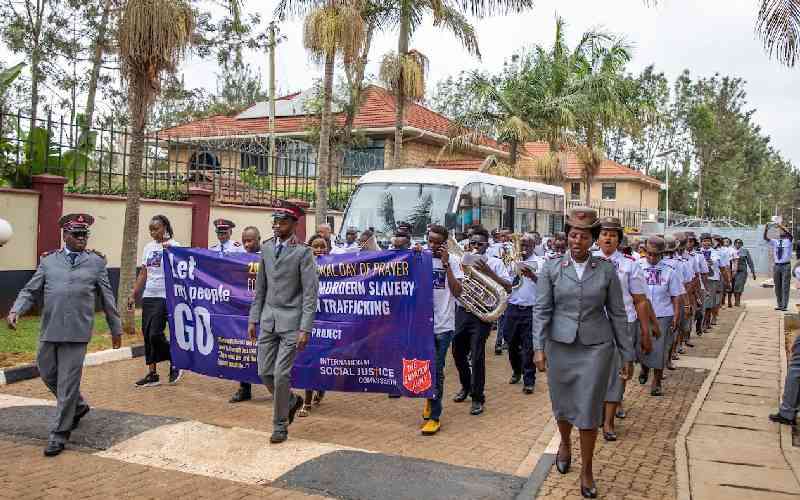×
The Standard e-Paper
Smart Minds Choose Us

The Salvation Army church has urged the public to openly speak against human trafficking saying the vice is degrading human dignity.
The need for the church to take a position stems from the fact that those trafficked, especially vulnerable women and children, are subjected to forced labour, domestic servitude and sexual abuse.